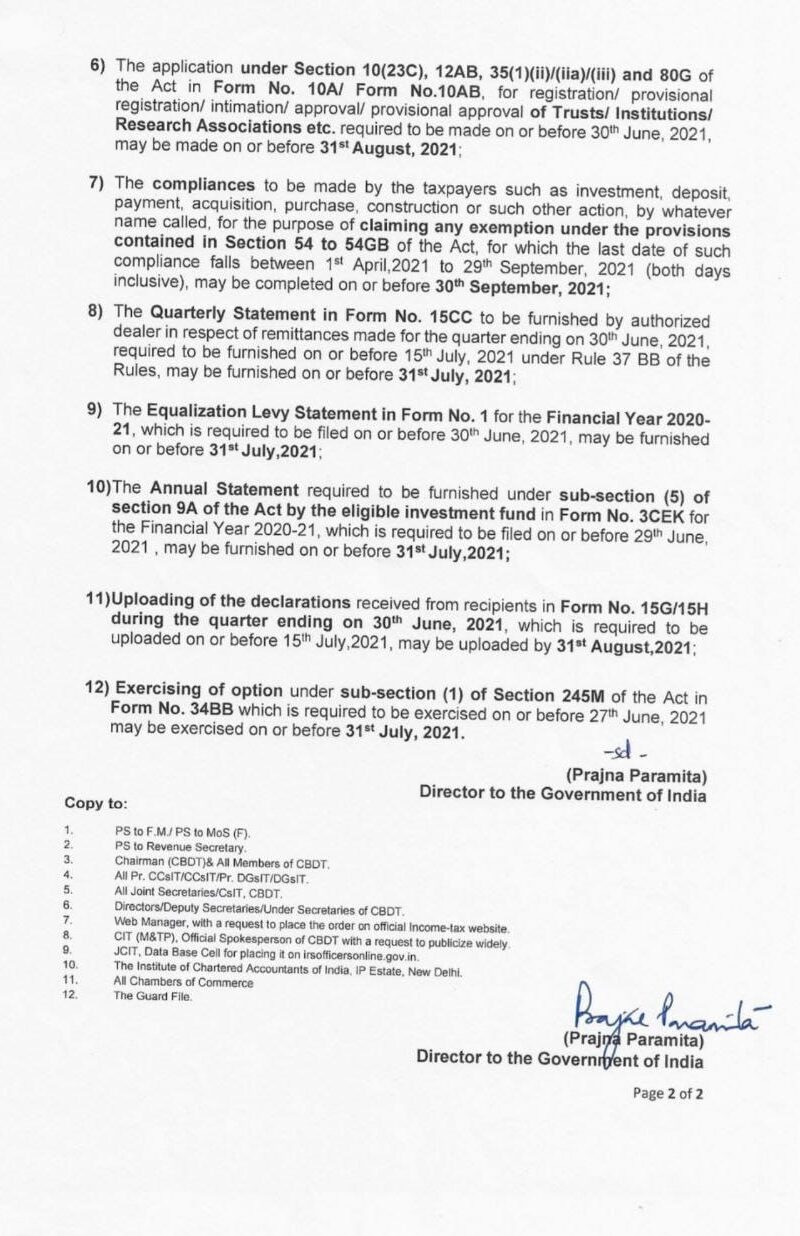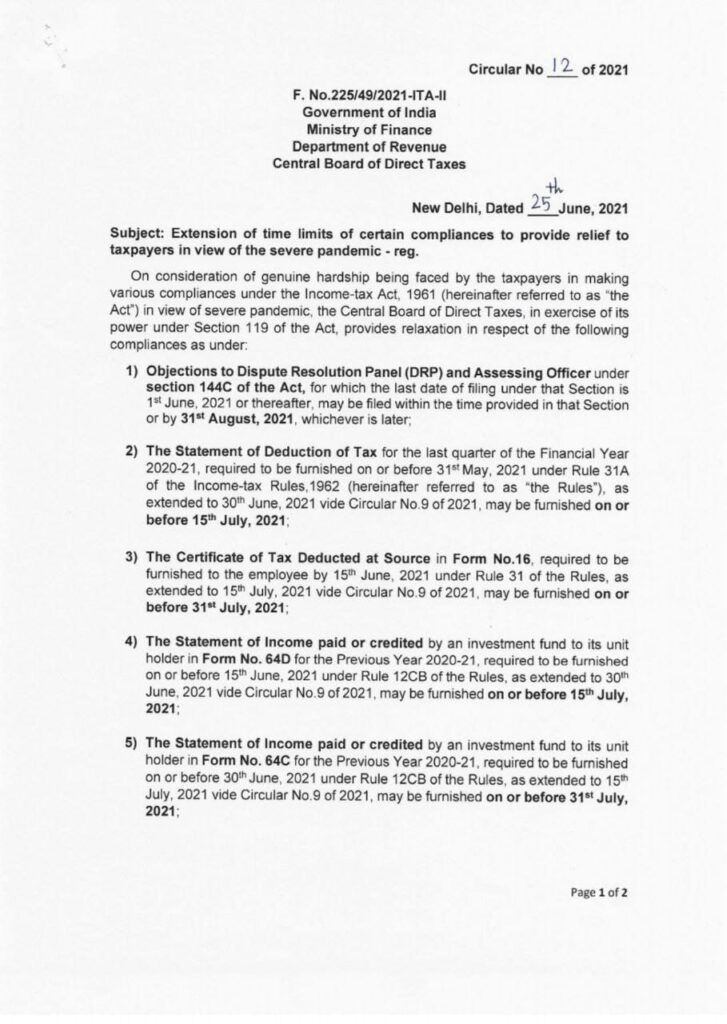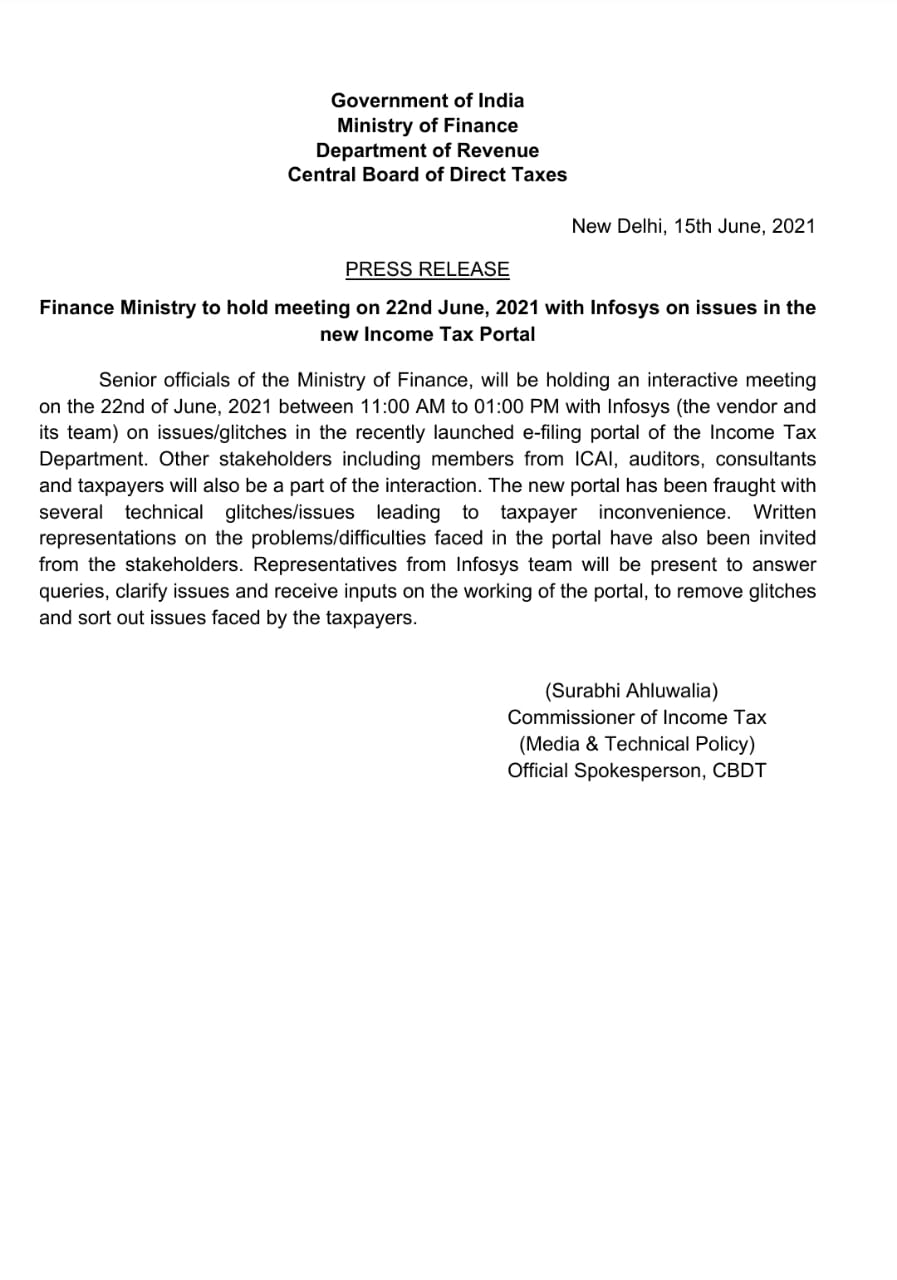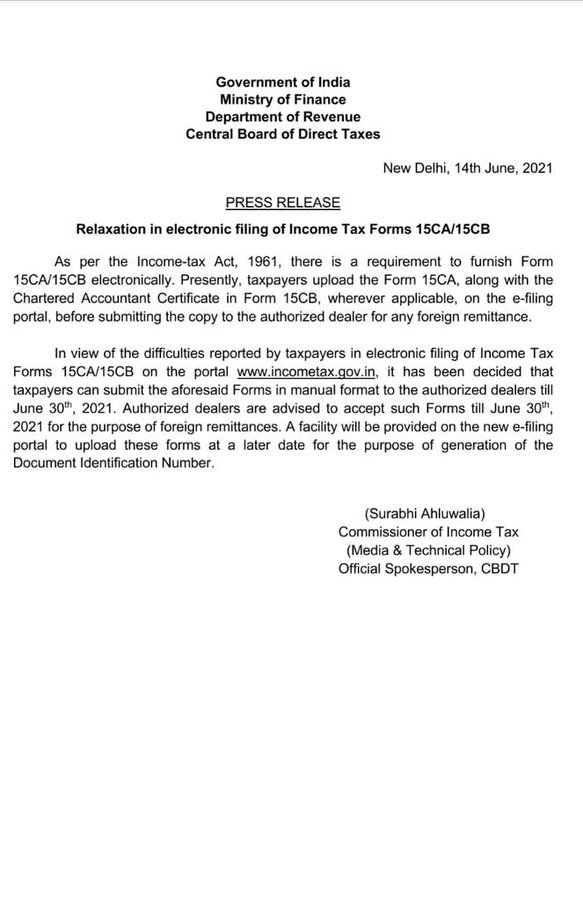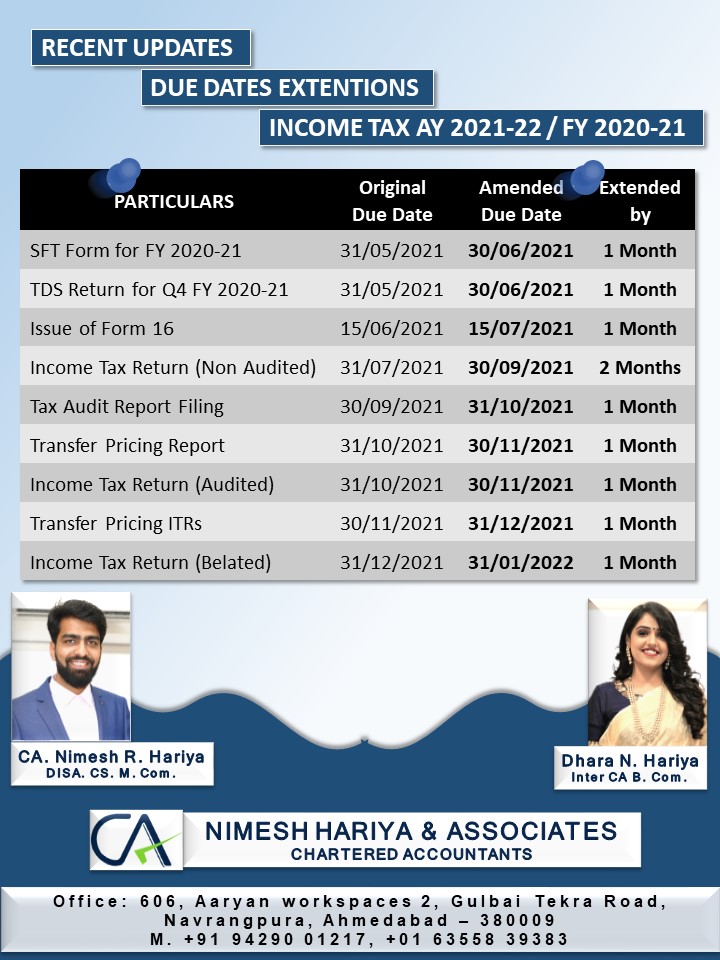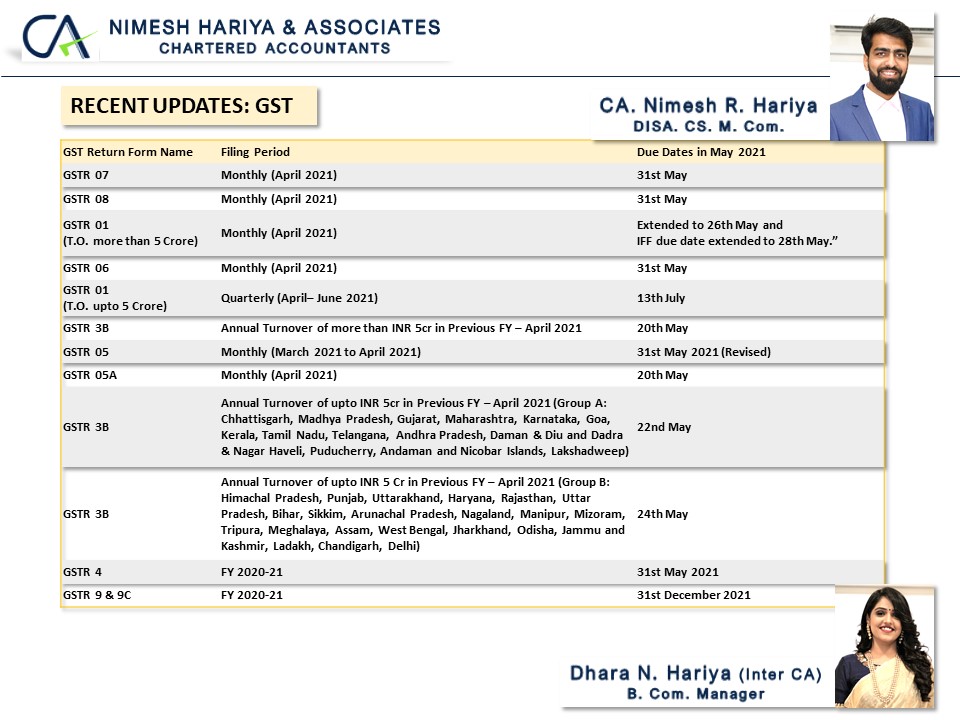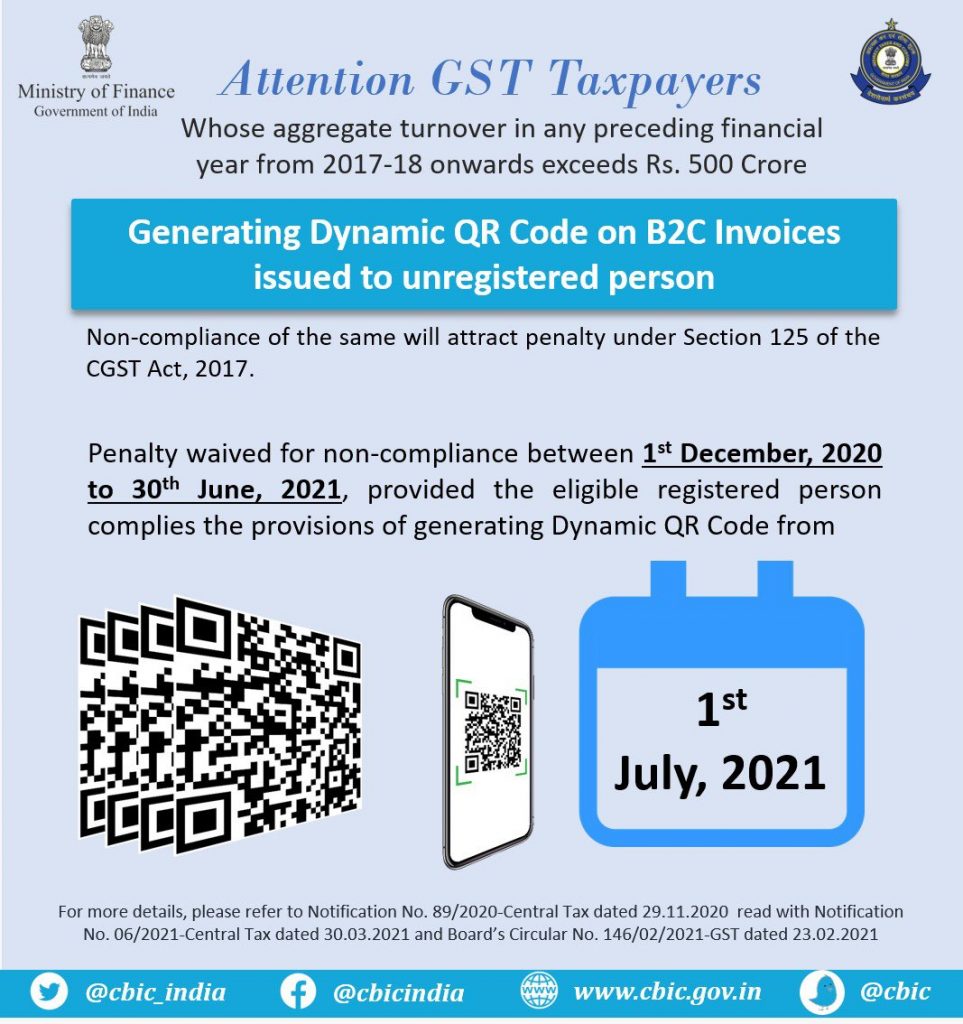by CA Nimesh Hariya | Apr 29, 2021 | Case Law - GST, GST Update
The Hon’ble Madras High Court in M/s. D. Y. Beathel Enterprises v. the State Tax Officer [W.P. (MD) Nos. 2127, 2117, 2121, 2152, 2159, 2160, 2168, 2177, 2500, 2530, 2532, 2534, 2538, 2539, 2540, 2503 & 2504 of 2021 & Ors., dated February 24, 2021] quashed the order passed by the officer levying the entire tax liability on the purchasing dealer without involving the seller, where the payment of tax has been made by the purchasing dealer, but the same has not been remitted to the Government by the Seller. Held that, the omission on the part of the Seller to remit the tax should have been viewed very seriously and strict action ought to have been initiated against the seller.
Section 16 of CGST Act, 2017 provides that Input Tax Credit (ITC) could be availed by the buyer if GST is paid by the seller. Thus, in case of non-payment of GST, who should be questioned, the seller or the buyer?
It can be seen therefrom that the assessee must have received the goods and the tax charged in respect of its supply, must have been actually paid to the Government either in cash or through utilization of input tax credit, admissible in respect of the said supply.
12. Therefore, if the tax had not reached the kitty of the Government, then the liability may have to be eventually borne by one party, either the seller or the buyer. In the case on hand, the respondent does not appear to have taken any recovery action against the seller / Charles and his wife Shanthi, on the present transactions.
According to the respondent, there was no movement of the goods. Hence, examination of Charles and his wife has become all the more necessary and When the petitioners have insisted on this, I do not understand as to why the respondent did not ensure the presence of Charles and his wife Shanthi, in the enquiry. Thus, the impugned orders suffers from certain fundamental flaws. It has to be quashed for more reasons than one.
a) Non-examination of Charles in the enquiry
b) Non-initiation of recovery action against Charles in the first place
Therefore, the impugned orders are quashed and the matters are remitted back to the file of the respondent. The stage upto the reception of reply from the petitioners herein will hold good. Enquiry alone will have to be held afresh. In the said enquiry, Charles and his wife Shanthi will have to be examined as witnesses. Parallely, the respondent will also initiate recovery action against Charles and his wife Shanthi.
FULL TEXT OF THE HIGH COURT ORDER /JUDGEMENT
Heard, the learned counsel on either side.
2. The petitioners’ herein are dealers, registered with Nagercoil Assessment Circle. Though the petitions are 17 in number, the issue raised in all these writ petitions is virtually one and the same.
3. The petitioners are traders in Raw Rubber Sheets. According to them, they had purchased goods from one Charles and his wife Shanthi.
4. The specific case of the petitioners is that a substantial portion of the sale consideration was paid only through banking channels. The payments made by the petitioners to the said Charles and his wife, included the tax component also. Charles and his wife are also said to be dealers registered with the very same assessment circle.
5. Based on the returns filed by the sellers, the petitioners herein availed input tax credit. Later, during inspection by the respondent herein, it came to light that Charles and his wife, did not pay any tax to the Government. That necessitated initiation of the impugned proceedings. There is no doubt that the respondent had issued shows cause notices to the petitioners herein. The petitioners submitted their replies specifically taking the stand that all the amounts payable by them had been paid to the said Charles and his wife Shanthi and that therefore, those two sellers will have to be necessarily confronted during enquiry. Unfortunately, without involving the said Charles and his wife Shanthi, the impugned orders came to be passed levying the entire liability on the petitioners herein. The said orders are under challenge in these writ petitions.
6. The respondent has filed a detailed counter affidavit and contended that the impugned orders, do not warrant any interference.
7. The learned Government Advocate would point out that the petitioners had availed input tax credit on the premise that tax had already been remitted to the Government, by their When it turned out that the sellers have not paid any tax and the petitioners could not furnish any proof for the same, the department was entirely justified in proceeding to recover the same from the petitioners herein. The respondent cannot be faulted for having reversed whatever ITC that was already availed by the petitioners herein.
8. The learned counsel for the petitioners would draw my attention to the decision of the Madras High Court made in Sri Vinayaga Agencies Vs. The Assistant Commissioner, CT Vadapalani, reported in 2013 60 VST page 283. It was held therein that the authority does not have the jurisdiction to reverse the input tax credit already availed by the assesses on the ground that the selling dealer has not paid the tax. I am afraid that this proposition laid down in the context of the previous tax regime may not be straight-away applicable to the current tax regime.
9. At this stage, the learned counsel brought to my notice that the press release issued by the Central Board of GST council on 4.5.2018. In the said press release, it has been mentioned that there shall not be any automatic reversal of input tax credit from the buyer on nonpayment of tax by the seller. In case of default in payment of tax by the seller, recovery shall be made from the seller. However, reversal of credit from buyer shall also be an option available with the revenue authorities to address exceptional situations like missing dealer, closure of business by the supplier or the supplier not having adequate assets etc.
10. On section 16(1) & (2) of Tamil Nadu Goods and Services Tax Act, 2017, also makes the position clear. It is extracted hereunder :
16. (1) Every registered person shall, subject to such conditions and restrictions as may be prescribed and in the manner specified in section 49, be entitled to take credit of input tax charged on any supply of goods or services or both to him which are used or intended to be used in the course or furtherance of his business and the said amount shall be credited to the electronic credit ledger of such person.
(2) Notwithstanding anything contained in this section, no registered person shall be entitled to the credit of any input tax in respect of any supply of goods or services or both to him unless,—
(a) he is in possession of a tax invoice or debit note issued by a supplier registered under this Act, or such other tax paying documents as may be prescribed;
(b) he has received the goods or services or both.
Explanation.—For the purposes of this clause, it shall be deemed that the registered person has received the goods where the goods are delivered by the supplier to a recipient or any other person on the direction of such registered person, whether acting as an agent or otherwise, before or during movement of goods, either by way of transfer of documents of title to goods or otherwise;
(c) subject to the provisions of section 41, the tax charged in respect of such supply has been actually paid to the Government, either in cash or through utilisation of input tax credit admissible in respect of the said supply; and
(d) he has furnished the return under section 39:
Provided that where the goods against an invoice are received in lots or instalments, the registered person shall be entitled to take credit upon receipt of the last lot or instalment:
Provided further that where a recipient fails to pay to the supplier of goods or services or both, other than the supplies on which tax is payable on reverse charge basis, the amount towards the value of supply along with tax payable thereon within a period of one hundred and eighty days from the date of issue of invoice by the supplier, an amount equal to the input tax credit availed by the recipient shall be added to his output tax liability, along with interest thereon, in such manner as may be prescribed:
Provided also that the recipient shall be entitled to avail of the credit of input tax on payment made by him of the amount towards the value of supply of goods or services or both along with tax payable thereon.”
11. It can be seen therefrom that the assessee must have received the goods and the tax charged in respect of its supply, must have been actually paid to the Government either in cash or through utilization of input tax credit, admissible in respect of the said supply.
12. Therefore, if the tax had not reached the kitty of the Government, then the liability may have to be eventually borne by one party, either the seller or the buyer. In the case on hand, the respondent does not appear to have taken any recovery action against the seller / Charles and his wife Shanthi, on the present transactions.
13. The learned counsel for the petitioners draws my attention to the order, dated 27.10.2020, finalising the assessment of the seller by excluding the subject transactions alone. I am unable to appreciate the approach of the authorities. When it has come out that the seller has collected tax from the purchasing dealers, the omission on the part of the seller to remit the tax in question must have been viewed very seriously and strict action ought to have been initiated against him.
14. That apart in the enquiry in question, the Charles and his Wife ought to have been examined. They should have been confronted. This is all the more necessary, because the respondent has taken a stand that the petitioners have not even received the goods and had availed input tax credits on the strength of generated invoices.
15. According to the respondent, there was no movement of the goods. Hence, examination of Charles and his wife has become all the more necessary and When the petitioners have insisted on this, I do not understand as to why the respondent did not ensure the presence of Charles and his wife Shanthi, in the enquiry. Thus, the impugned orders suffers from certain fundamental flaws. It has to be quashed for more reasons than one.
a) Non-examination of Charles in the enquiry
b) Non-initiation of recovery action against Charles in the first place
16. Therefore, the impugned orders are quashed and the matters are remitted back to the file of the respondent. The stage upto the reception of reply from the petitioners herein will hold good. Enquiry alone will have to be held afresh. In the said enquiry, Charles and his wife Shanthi will have to be examined as witnesses. Parallely, the respondent will also initiate recovery action against Charles and his wife Shanthi.
17. With these directions, these writ petitions are allowed. No costs. Consequently, connected miscellaneous petitions are closed.
